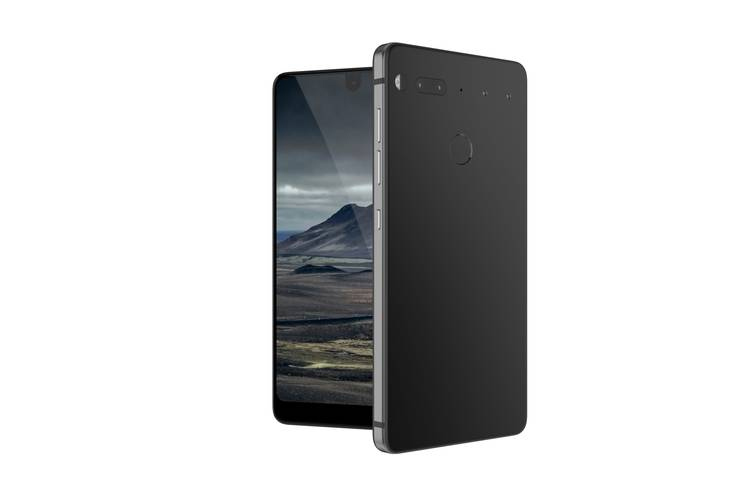Andy Rubin, the father of the Android operating software, is jumping into the cutthroat smartphone market with the Essential Phone, an attempt to claw away customers from Apple Inc. AAPL +0.00% and Samsung Electronics Co.
Mr. Rubin designed the $699 phone in titanium, a material that Essential Products Inc. says can withstand a concrete landing unscarred. The phone has magnetic connectors to accommodate modular accessories, such as a 360-degree camera.
In a blog post, Mr. Rubin said that he wanted to create a premium device that won’t demand an update every year and isn’t bogged down by unwanted things such as preinstalled apps. It will run on Android software.
But analysts aren’t convinced Essential has what it takes to compete in the crowded smartphone market.
“How is our everyday experience using this phone going to be different?” said Jan Dawson, chief analyst at Jackdaw Research. “Is it just the fact that if we drop it it won’t break?”
 One of the features that the company is touting—the click on 360-degree camera—is already offered by its competitors in some form and remains niche. Samsung, which launched the trend, is now working on the second-generation version of the camera, dubbed Gear 360.
One of the features that the company is touting—the click on 360-degree camera—is already offered by its competitors in some form and remains niche. Samsung, which launched the trend, is now working on the second-generation version of the camera, dubbed Gear 360.
Mr. Dawson also questioned how the phone will be distributed. The company hasn’t said which carriers will support and sell the device. Essential said it would be released in the U.S., but didn’t specify when.
Apple has a firm grip on the high end of the smartphone market that Essential is targeting, said Benedict Evans, an analyst at venture-firm Andreessen Horowitz. “The customer for this ’premium, well-designed phone with no hassles or crapware’ already bought an iPhone,“ wrote Mr. Evans in his newsletter on Tuesday. ”It’ll sell, but does it change the phone market?”
More budget friendly price tags appear to be resonating with consumers, according to Gartner’s latest report. Huawei Technologies Co., OPPO Electronics Corp., and Vivo Communication Technology Co. Ltd. have gained traction on a strategy of building “desirable features at affordable prices.” The three Chinese manufacturers grabbed a combined 24% share of the market in the first quarter, up 7 percentage points from a year earlier.
The biggest attribute the Essential Phone has going for it now may be the allure of Andy Rubin. As the co-creator of Android and the person who built Sidekick, the T-Mobile phone that was a precursor to the smartphone, Mr. Rubin is his own valuable brand. He led Google Inc.’s Android business for nearly 10 years and left in 2014 to start an incubator for startups interested in building technology hardware products. He is the CEO of Essential Products.
Earlier this year, The Wall Street Journal reported that SoftBank Group Corp. backed out of a deal to invest $100 million in Mr. Rubin’s company, partly because of the Japanese investor’s increasingly close ties with Apple. A spokesman for Essential Products didn’t immediately respond to a request for comment on Tuesday.
But Mr. Rubin’s resume doesn’t make him immune to the challenges of breaking into the smartphone market, which has had many more flops than blockbusters. Amazon.com Inc.’s Fire phone was a bust and South Korea’s LG Electronics Inc. is pivoting after the modular design it embraced to differentiate its products was a dud.






